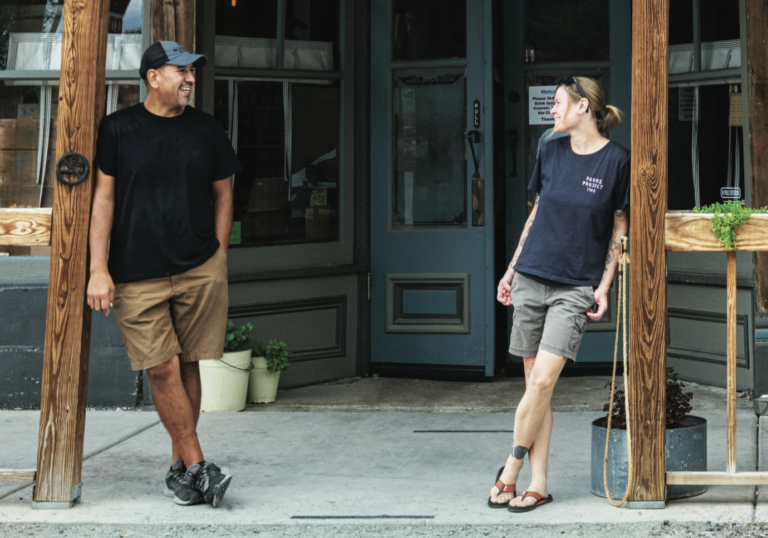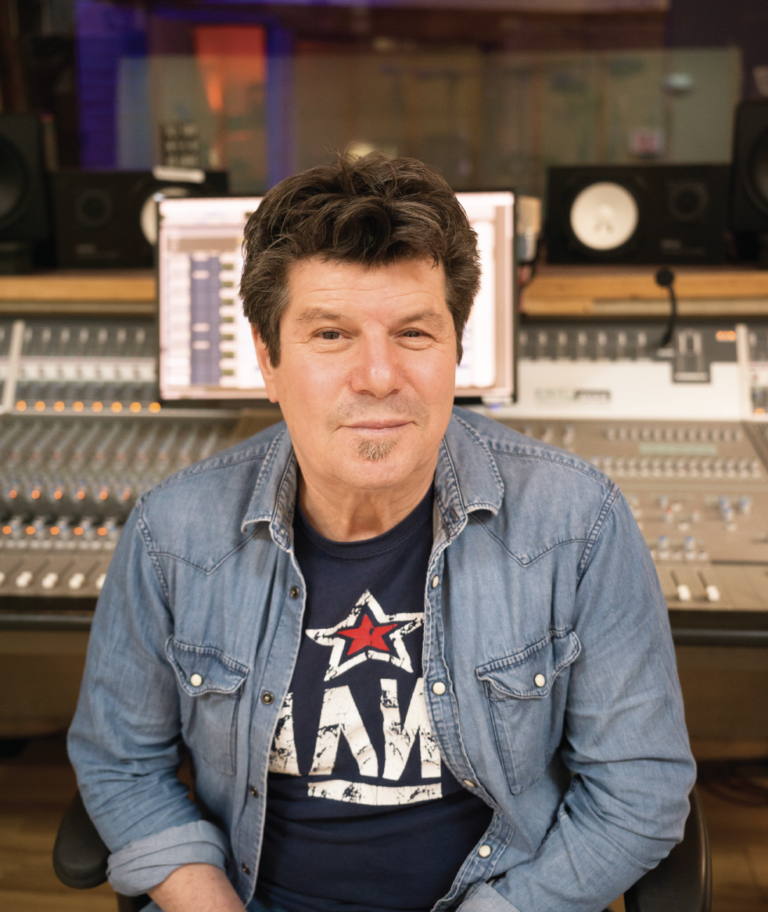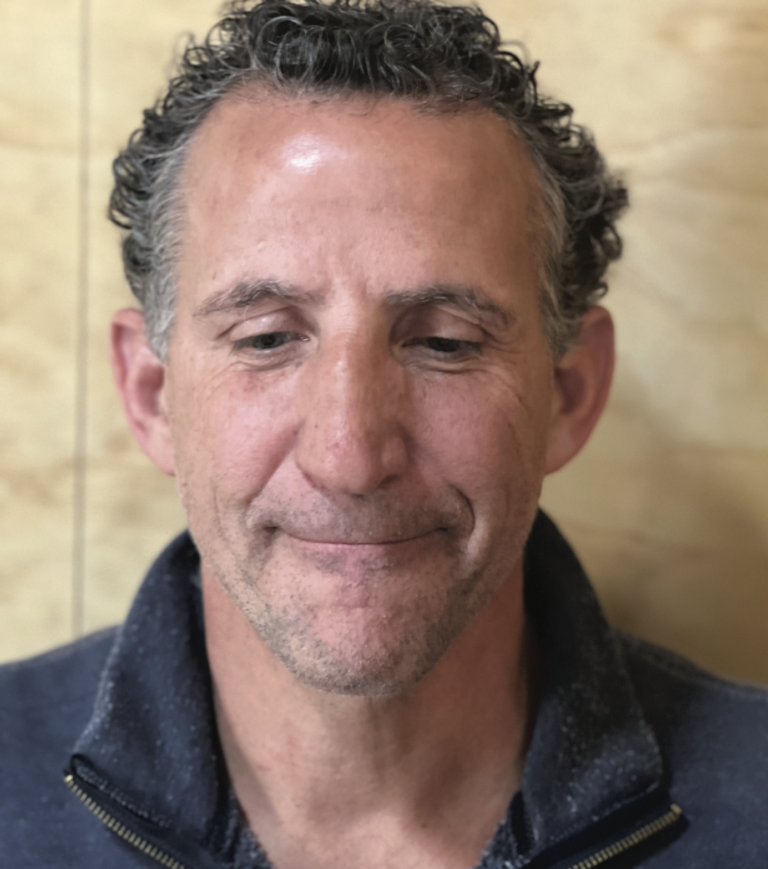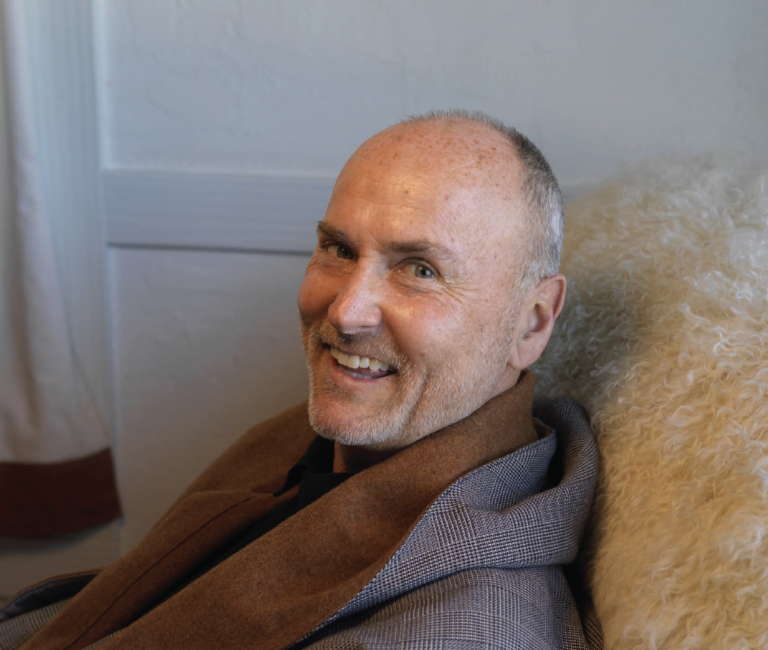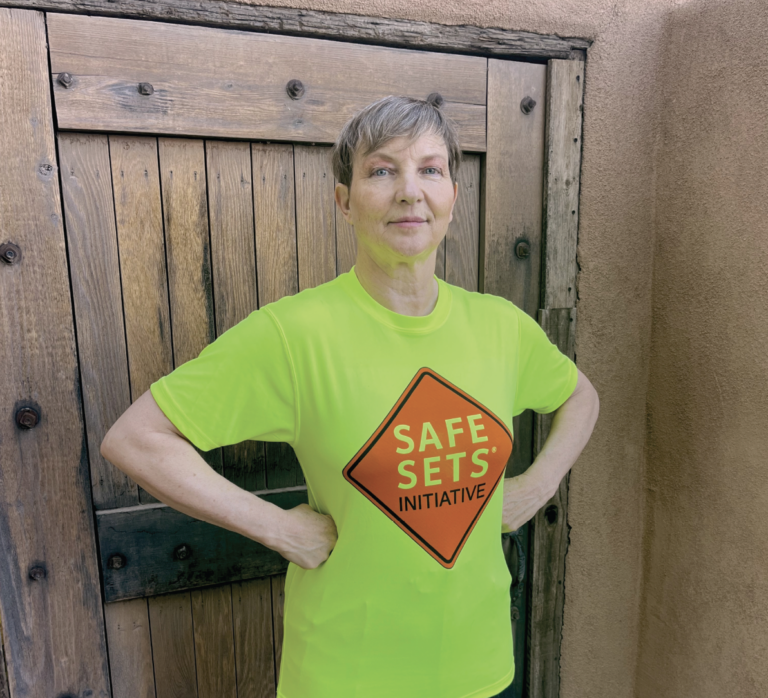TARRIE HAS THE ZEAL OF AN EVANGELIST. You can tell she would have grace under fire. Which is all very handy in her line of work.
That work is her camp, Tomorrow’s Women, which trains young Israeli and Palestinian women as peacemakers. It was started by women, is run by women, and is for women. (Boys, it seems, are considered bad prospects as peacemakers. How surprising.)
The average attendee is 14 years old. Half the group comes from Israel, half from Palestine. By circumstance, tradition, and geography, they are natural enemies. They are flown into Santa Fe, where they live together and address issues, enmities, and preconceived assumptions.
They are all guided by a precise, nuanced, brilliant set of principles. As their site says, “Leadership training begins with…intensive dialogues and creative expression. Feelings of hatred and fear are broken down to pave the way for mutual respect, cultural understanding, and a heightened awareness of self.”
Tomorrow’s Women is based on active, compassionate listening. It doesn’t always work – there was a group of girls that got into a fight over a t-shirt, and some leave with the same biases they arrived with. But others, a non-silent majority, learn to negotiate and fix things in themselves, their families, their communities, and – on more than one occasion – the world.
Here’s an idea: Let’s make Congress try this. Oh yeah – they’re mostly men. Well, try it anyway. And call it Camp Democracy.
How did the Tomorrow’s Women camp get started?
Rachel Kaufman, Debra Sugerman, and Anael Harpaz founded the camp in 2003. Rachel had a beautiful 60-acre property north of town that became the camp.
They wanted to do something that was different than government, different than militaries, different than men. They wanted to bring young women out of the Middle East conflict to this beautiful spot and get them to talk – and listen.
So they created a safe space for young women to gather. Some of the women wear the hijab or the scarf, so it’s important that they can take that off; they can only do that in women-only spaces. So there’s a lot more space for them to share ideas, for the shy to come forward, for them to support each other and learn what it means to have a sisterhood.
So that’s why it’s women-only?
Boys and men are violent. They have traditionally been the warriors. Women aren’t out there starting wars.
And what is the methodology?
It’s simple. It revolves around what we call compassionate dialogue, which is a combination of compassionate listening and authentic speaking. Compassionate listening is a skill taught by counselors and social workers where you actively engage, you listen to a story even if you don’t agree, you hear that person. It brings in the heart.
And with authentic speaking, there’s no we. You use I statements. So there’s no We the Palestinians, We the Israelis, or We the Americans. It’s always I. The girls come to the camp for three weeks and spend 40 hours in facilitated dialogue. Then they transition into the second part of our methodology, which is therapeutic and creative arts. Here, they process and transmit deep emotions. They sit with each other and create, whether they are artists or not.
The third part is emotional resiliency. You can’t sustain being a peacemaker in an active conflict zone if you don’t know how to take care of yourself. We teach breathing techniques, movement of the body, and awareness.
The last pillar is leadership. You can’t end a conflict if you don’t talk, if you don’t have dialogue. This is the core of how to be a compassionate, empowered leader out in the world.
How do the women apply?
It’s competitive. We have 16 slots, and we recently had 76 young women apply. A lot of this is word of mouth in their own communities.
For the ones that are selected, it’s important to get them physically out of their communities to a neutral place. One could argue that the US is not neutral, but for these intents and purposes, it is. And there’s a beauty, a holiness to the New Mexico land – an intangible, sacred quality.
But we’re essentially bringing perceived enemies together, and it’s not all gonna be perfect. One young woman came and spent the first night literally plotting how to kill her roommate while she was sleeping. She had that much anger inside of her. But by the end of the program, the anger was transformed. Now she works for the Harvard Negotiation Project and is teaching negotiation skills to world leaders.
These girls learn vulnerability – the vulnerability it takes to hear someone’s story or opinion that you don’t agree with and to sit there in that space and stay with that person in relationship. And that relationship is defined in that moment of just listening. To stay in that space requires an immense amount of bravery.
But to reject those things, you have to reject what you’ve been taught. In that sense, you’re rejecting your parents…
Your society, your entire community. These are some of the bravest young people I have ever met.
How did you get involved with this?
I had amazing parents. I think it all starts there. I was always supported at that level, which I think is really important. We are raised in a community of people, and what those people tell us often becomes our story.
Anyway, I got my undergraduate degree in women’s studies. I loved understanding the matrix of oppression and power, but I was like, I don’t wanna sit around and talk about it. I wanna do it.
And today, what wakes me up every day and keeps me engaged is that love always wins. I believe that. When you choose love, connection, and relationship, it’s the highest path, and you’re going to see transformative results.
Do you see a ripple effect with adults?
Absolutely. We were just in LA at a progressive synagogue, giving a talk. After the talk, our alums and a few people stayed back and were chatting. So they’re sharing their stories, and this young woman comes in and sits down. She’s listening intently as the Palestinian alums speak.
One alum was sharing about how her father was murdered in front of her and her mom. And later, how her mother was shot while pregnant with her sister. This young person raises her hand and says, I don’t even know what this is. I just walked by. I was planning to move to Israel next week. I just wanted to support Israel. But after hearing your story, I can’t go. I’m rethinking every single thing I have thought! That’s bigger than 16 girls coming to camp in Santa Fe.
It seems the camp is suggesting that women are better suited for leadership positions by nature.
We have some good data to reflect that. When a peace treaty is signed and women represent 50% or more of the decision makers, they are at least 50% more lasting.
But the ethos of our organization is not Let’s do this without men. It’s Let’s do this together. Let’s rebalance this place so that we can all coexist, so all of it is honored.
Women and men need to know how to do this. These skills of compassion and listening should be taught in schools. I think the reason people love what we do is because anytime they interact with these young women, they walk away with the hope that a different way is possible.
Learn more at tomorrowswomen.org
Photo SFM



